 |
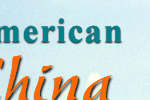 |
 |
 |
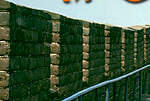 |
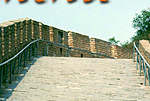 |
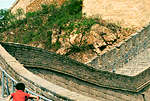 |
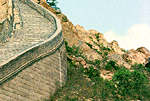 |
 |
 |
 |
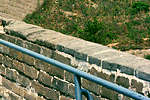 |
 |
 |
 |
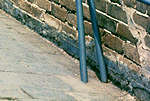 |
|
September 25, 2001 A Chance for a New Friendship?For traditional rivals of the US, the tragedy in New York and the ensuing "War on Terrorism" have provided a chance to wipe the slate clean and establish a New World Order. Russia and the various -stans, especially Pakistan, Tajikistan and Uzbekistan have offered up their land to the Western coalition, in return for – they hope – financial assistance, increased political and military connections and in the case of Russia, the scrapping of the NMD. |
|
China, too, may benefit from the latest war. As the a major power in Central Asia, China may assume responsibility for keeping the peace in the region after Afghanistan is ravaged yet again. Chinese intelligence in the area is valued by the US and the Chinese have shown no qualms about sharing – Foreign Minister Tang Jiaxuan and US Secretary of State Colin Powell met last Friday, and intelligence experts from the two countries will meet next week to discuss cooperating against terrorism. The Shanghai Cooperation Organization could provide a forum for control in the area – next year the member countries, all supporters of the war in one way or another, will sign a charter in St. Petersburg. The members have expanded their ties from security to economic trade, specifically in the transport, telecommunications, and fuel and energy industries. In order to realize any benefit from these economic ties, the SCO must establish stability in Central Asia. Why not use the war as a tool to forge a power vacuum, which may then be filled by the regional players? Of course, a war in Afghanistan could just as easily create a massive refugee problem. And where, pray tell, will all of these Muslims go? The Pakistan border is closed and Uzbeks and Tajiks make up most of the Taliban's domestic nemesis, the United Front in the north – this leaves Iran and China. In Xinjiang, they may find a Uigher and Kashgari population sympathetic to their plight and eager to join them in a new rebellion. BUT WILL THEY LEAVE WHEN THEY'RE DONE?This is the main question the Chinese government is contemplating. For all their talk about support of anti-terrorism measures against the Taliban and cooperation between anti-terrorism experts from the US and China, Chinese authorities are very nervous about a possible NATO/US occupation of Afghanistan. If the US were to maintain a considerable force in the area, China would be facing more than 70,000 US troops on its Eastern border and who knows how many on its Western border. After Jiang Zemin expressed his sorrow and support, several members of the Communist Party wrote in and warned against the "angelization" of the US after this incident. The US is neither evil nor good. The US is "realistic" and will drop a friend or engage an enemy at a moments notice. Consider the love shown toward Pakistan now that Musharaff has pledged support for the US campaign: Bush waived sanctions imposed after 1998 and Pakistan's status as a friend of America was raised high enough to force India to offer airbases for the campaign. Consider former CIA buddy bin Laden himself. And now that the sanctions on the sale of munitions have been waived, what does that mean for the strong trade in such materials between China and Pakistan? Can the US still impose its will on Chinese companies selling arms to Pakistan after both countries support the US war? Chinese munitions may even end up killing a few Afghanis. If the Coalition decides to set up camp permanently in those huge former Soviet bases in Uzbekistan and Tajikistan, the SCO will face a very strong rival. Who would the Western occupation forces help to dig up all that oil in the region: Chevron or the SCO, led by former enemies Russia and China? Only in its infancy, and with both Tajikistan and Uzbekistan leaning toward the West in the economic realm, the SCO could quickly fall apart. The Central Asian -stans also have a long history of resistance to Russian rule. After 1991, Uzbekistan quickly changed official languages, ownership laws and basically purged Russians from the government. For China and Russia, the hoped-for chance to take control of the region may become a disaster in which longtime foe America establishes a large military presence, while defeated, bitter and desperate Afghanis spill over the mountains and across the borders. EASY COME, EASY GOOnly a select few can count on the US's friendship: Israel, Britain and anti-demon-of-the-day-tyrants. When the demon is vanquished, US friendship goes up in a puff of smoke. In most cases, the erstwhile buddy regains the title of tyrant and "enemy of democracy." Whose to say sanctions won't be re-imposed if Pakistan and India start flexing again? What if Musharraf bows to Islamic domestic pressure? What if a few academics are accused of spying for Taiwan? Or another "fishing boat" enters the Spratlys? Another likely scenario, now that China is a member of the WTO, is a series of "antidumping" measures against the influx of Chinese peaches and pants. The new friendship will quickly be replaced with old animosity. IN THE HOPE OF A NEW LIFEIf the World Powers truly wish to create a multipolar world order, this chance must be utilized fully. The tragedy in New York argues against a lone superpower, a lone policeman with invincible power over all. The weapons to combat terrorism are international cooperation and varied views of justice, instead of unilateral action and American-style justice. The coalition being assembled now is a coalition of war, the real test for the leaders of the world is whether or not they can keep this alive after the carnage – the coalition that destroyed Iraq has fallen apart, save for lapdog Britain, because that coalition remained one of war. Wang Yizhou, a young, up and coming foreign policy analyst has remarked that closer ties between the US and Russia come at the expense of NMD and US arrogance/bullying. Is Rumsfeld prepared to scrap his war in space project? The US in the midst of Empire-building, i.e. war, does not appear to have a change of policy in mind, but a change in policy is a must if terrorism is to be neutralized and stability maintained. America cannot afford to base troops everywhere in the world – from Iceland to Okinawa. Let the regions rule themselves – a realization of the benefits of multipolarity may be the one good that comes out of this. Francesco Sisci writes in the Asia Times that China's political system must also modernize itself along with its economy in order to keep the hope for a multipolar world alive. Chinese politicians still spit out Communist refuse, even though the whole country is exploding with capitalist greed. They whine about having entrepreneurs in the Party: what a joke! Party members depend on "public relations" costs from these very entrepreneurs to provide tuition for their kids in Canada, England, Germany, etc. – among other luxuries that most Chinese only dream of. The government still claims to be a "revolutionary party" following various Mao/Deng/Jiang thoughts – many of which are incomprehensible and completely irrelevant in today's China. China is currently depending on its economic might – much of it potential – to build up its international standing. The government has yet to do much besides demanding that Taiwan return and that Bush apologize. (Oh, Jiang does make dozens of international visits and phone calls...) In any case, the transition of the Chinese government from feces-spouting dinosaur to an actual global leader is much more likely than the one the US government must go through: Namely, from feces-spouting Empire to an actual global leader. |
Text-only printable version of this article Sascha Matuszak
is a teacher living and working in China. His articles have appeared
in the South China Morning Post, the Minnesota Daily,
and elsewhere. His exclusive Antiwar.com column appears Tuesdays. Archived columns A
Chance for a New Friendship? Cheating
as a Way of Life China's
Internet Generation Free
Markets or Supermarkets Sailing
Towards World Significance China's
Youth Revolution |
Please Support Antiwar.comSend contributions to Antiwar.com or
Contribute Via our Secure Server |
|
